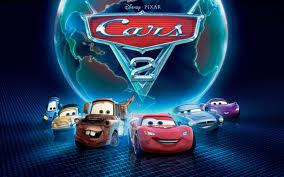 Please see my earlier post: Cars I – On Not Getting Fleeced
Please see my earlier post: Cars I – On Not Getting Fleeced
Here’s several ideas that may help you pay the right amount for your car.
1. Cars are not investments. Unlike houses, cars only lose value over time.[1] Cars are big consumer goods that depreciate quickly in value.
2. As a result, all money you put into your car evaporates over time. The more you pay for your car, the more money you’ve vaporized with consumption.
3. Paying more for a car at the lot does not make it more likely that you’ll avoid dings, scratches, accidents, depreciation, or food spills. In fact the monetary damage you inevitably suffer as a result of these events will be that much higher, based on your higher starting price.
4. Used cars are offered at a lower price than comparable new cars.
5. Buying a new car means you’ve got one day to enjoy your higher value consumer good. After that one day, you own a used car. The value of that car the next day, should you choose to sell, is significantly lower than it was when you bought it, yesterday.
6. Paying cash, rather than purchasing with a car loan, is not available to everyone, and it does not necessarily guarantee a better deal at the car dealership.
7. What paying cash does do, however, is make you a more disciplined buyer. If you have only a certain amount you’re willing to spend, and it comes immediately out of your bank account, you’re less likely to be fleeced in all the various ways the dealerships will try to fleece you.
Accessories
On accessories, know that some car dealerships like to channel the Pentagon’s pricing scheme for paper clips, hammers, and toilets when it comes to car accessories. Accessories are a major profit center for some car dealerships.
“Those little floorboard carpets there? Hoo-boy, those will probably run you an extra $1,200.”
“Oh, you actually want windshield wipers? Well, that’s only available in the Deluxe model, which we sell for an addition $6,800 above the base model. Not everybody requires windshield wipers, as you know.”
Obviously the cure for this type of bullshit is the Interwebs, which – when consulted in advance – clear up exactly what is ‘Base Model’ and what is ‘Deluxe.’
The weird and amazingly annoying thing is how often – in the present day – power windows, air conditioning, and a car stereo qualify for extra costs above base model. Any car company who still considers these ‘Deluxe’ accessories should be publically shamed. That’s my new rule.
Cash Back
If you’re walking away from a car dealership with extra money ‘cash back’ following your car purchase, you’re doing it wrong. Just trust me. This is not a good deal for you.
Zero money down, Zero % financing, Zero payments for 6 months
Same idea here as cash back. File this one under the category: There’s no free lunch.
So, you’re definitely overpaying for this thing you bought with zero, zero, zero conditions.
And yeah, I’m talking about a company like Mitsubishi, which had the zero, zero, zero offer a few years ago. Any business which offers you a costly consumer good like a car[2] on credit terms like this knows, in their heart of hearts, they are fleecing you on the price. Anyone who bought a Mitsubishi under those terms offered a few years back probably overpaid by about 30% for that product.[3]
Now, if you never intended to pay for the car and just wanted to take temporary advantage of an overly generous car offer, then you’re a clever cheater and Mitsubishi’s offer was just a nice way for you to cheat the system.
But if you’re a bona-fide car buyer who bought a Mitsubishi under those conditions: I’m sorry but you paid too much for the car.
Please see my earlier post: Cars I – On Not Getting Fleeced
[1] I’m not referring to collectibles, smart-ass. I am aware of that exception to my rule, which is irrelevant to this rule about car-buying.
[2] Or, even more typically, but on a smaller scale, home furniture.
[3] Of course I’m making this 30% number up. But I do have experience with the time value of money. Zero, zero, zero deals depend on customers, who have no idea about the time value of money, not noticing that the only way this makes sense is if the selling company WAY overcharges for their product.
Post read (8704) times.

